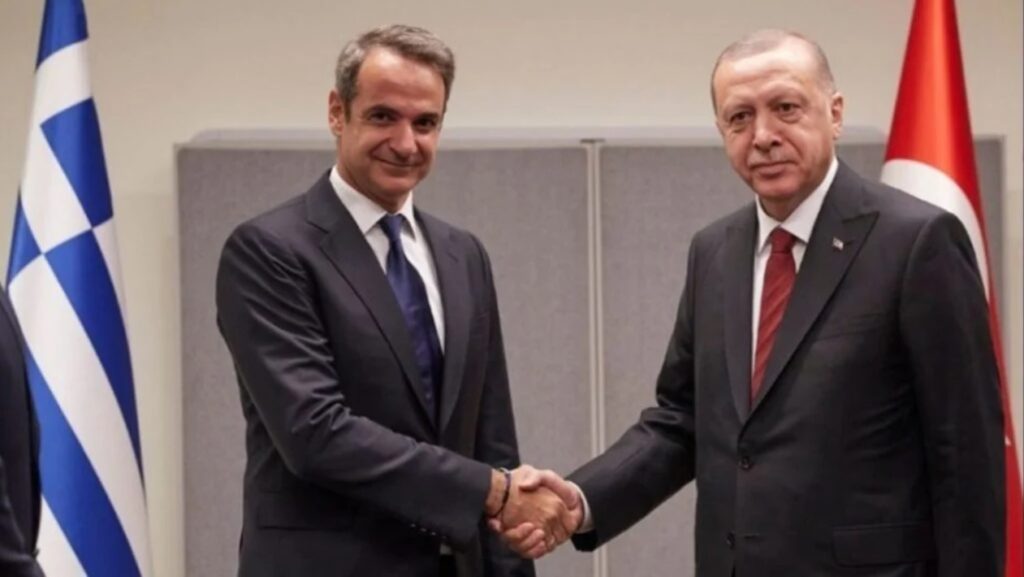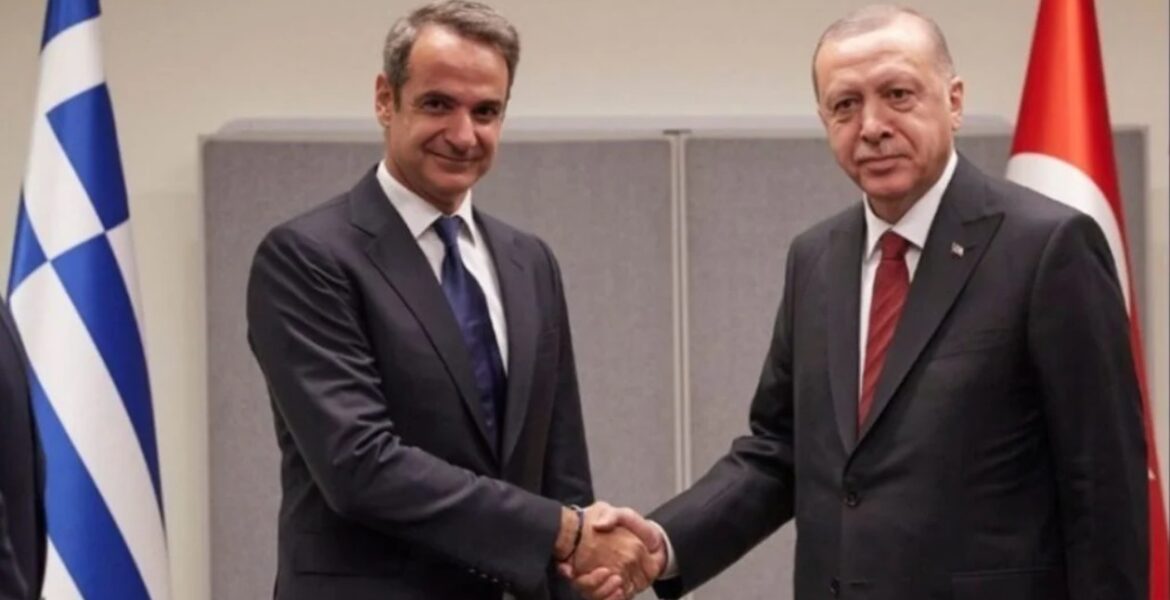
A few days ago, Eleni Sourani, head of the Prime Minister’s Diplomatic Office and responsible for European Union (EU) affairs, received a phone call from Berlin. Her German interlocutor, Jan Hecker, Angela Merkel’s diplomatic adviser, had an interesting proposal that could open a “window of opportunity” to “break the ice” in Greek-Turkish relations.
The “window of opportunity”, as reported by To Vima, was the transition to the German capital for talks between Greece and Turkey. And the proposal was to set up a channel that would pave the way for a telephone conversation between Greek Prime Minister Kyriakos Mitsotakis and Turkish President Recep Tayyip Erdoğan. The idea worked. The advisers of the two leaders talked by phone and agreed to communication. It took place at around 3pm last Friday and was followed by identical announcements released by the two countries.
İbrahim Kalın, Erdoğan’s top adviser organised most of it. He is not just a spokesman for the Turkish presidency, but the man who undertakes difficult missions.
Kalın’s channel with Vangelis Kalpadakis, Alexis Tsipras’ diplomatic adviser, had initially worked harmoniously. But then, especially from 2017 onwards, it weakened and at some point was deactivated, despite attempts to reopen it last summer. It should not be forgotten that in early March, Erdoğan returned from Moscow to discuss with Vladimir Putin developments in Syria. He had told reporters that his country’s doors would not be closed to refugees, that Greece’s stance on the issue was inhumane and that he did not want to meet Mitsotakis in Bulgaria.
Since then, few channels of communication between the two countries have remained open, even at a low level.
In recent days, Maximos Palace has been watching with particular interest the contradictory statements made by Turkish officials, saying that the Greek government remains willing to accept the resumption of contacts that ended, but obviously not under the current circumstances. In this regard, the reopening of the channels will be important. However, this does not mean that everything will change from one moment to the next.
Mitsotakis and Erdoğan focused on “low policy” issues, such as tackling the pandemic and possibly restoring travel flows between the two countries – issues that concern both Greece and Turkey. The Turkish president also wants Turkey to join the next group of countries from which Europe will receive tourists.
Could this top communication be the trigger for a de-escalation of tensions, initially, and the start of some more systematic contacts a little later? No one would bet on it based on recent experience. The crucial dimension in Greek-Turkish relations is trust and it takes time and care to build. A calm summer could pave the way for political consultations and perhaps for the next round of confidence building measures. But trust is fragile, and tactics could be nothing more than “step by step.”
At the same time, a European-level debate has begun on a new framework for Euro-Turkish relations, through which Athens could set some conditions to meet its concerns. The country that has urgently raised this issue lately is France. Relations between Paris and Ankara have been hit hard, mainly due to developments in Libya, where the French side with the Libyan National Army against the Turkish-backed Muslim Brotherhood Government of National Accords based in the capital city of Tripoli. At the same time, the recent incident in the Mediterranean with the confrontation between the French and Turkish frigates has dangerously raised the temperature in bilateral relations.
The issue of Euro-Turkish relations was also at the center of the talks that European Union Minister for Foreign Affairs Josep Borrell had in the Greek capital in recent days. The EU High Representative for Foreign Affairs and Security Policy discussed with Mitsotakis and Greek Foreign Minister Nikos Dendias the next steps ahead of the July 13 meeting of the Foreign Affairs Council, which will focus exclusively on Euro-Turkish relations.
The discussion will be in depth and in a close circle of participants. Borell, who at the beginning of his tenure was dealing with Euro-Turkish relations rather naively, is said to have realised that the situation tends to get out of control. After Greece he went to Cyprus.
In European circles, Turkey’s accession process seems to be a thing of the past. The question is what form Euro-Turkish relations could take. Some of the issues raised by Ankara, such as the ending of visas, will not be accepted by many EU countries. Customs Union upgrades could be a tool if used properly. However, Athens – and obviously Cyprus as well – wants some milestones to be set, and in this context, if the tension persists, Mitsotakis will keep the demand for sanctions on the table.
It is also clear that Athens attaches great importance to the developments in Libya, which Dendias briefed Borell about. The Greek Foreign Minister had first heard the views of Egyptian President Abdel Fattah al-Sisi. The situation in the North African country could become uncontrollable if the parties involved exceed the limits, and the Turkish role in Libya is now aggravating. However, in the context of the mobility of Athens, Dendias is expected to visit Tunisia today for talks.

